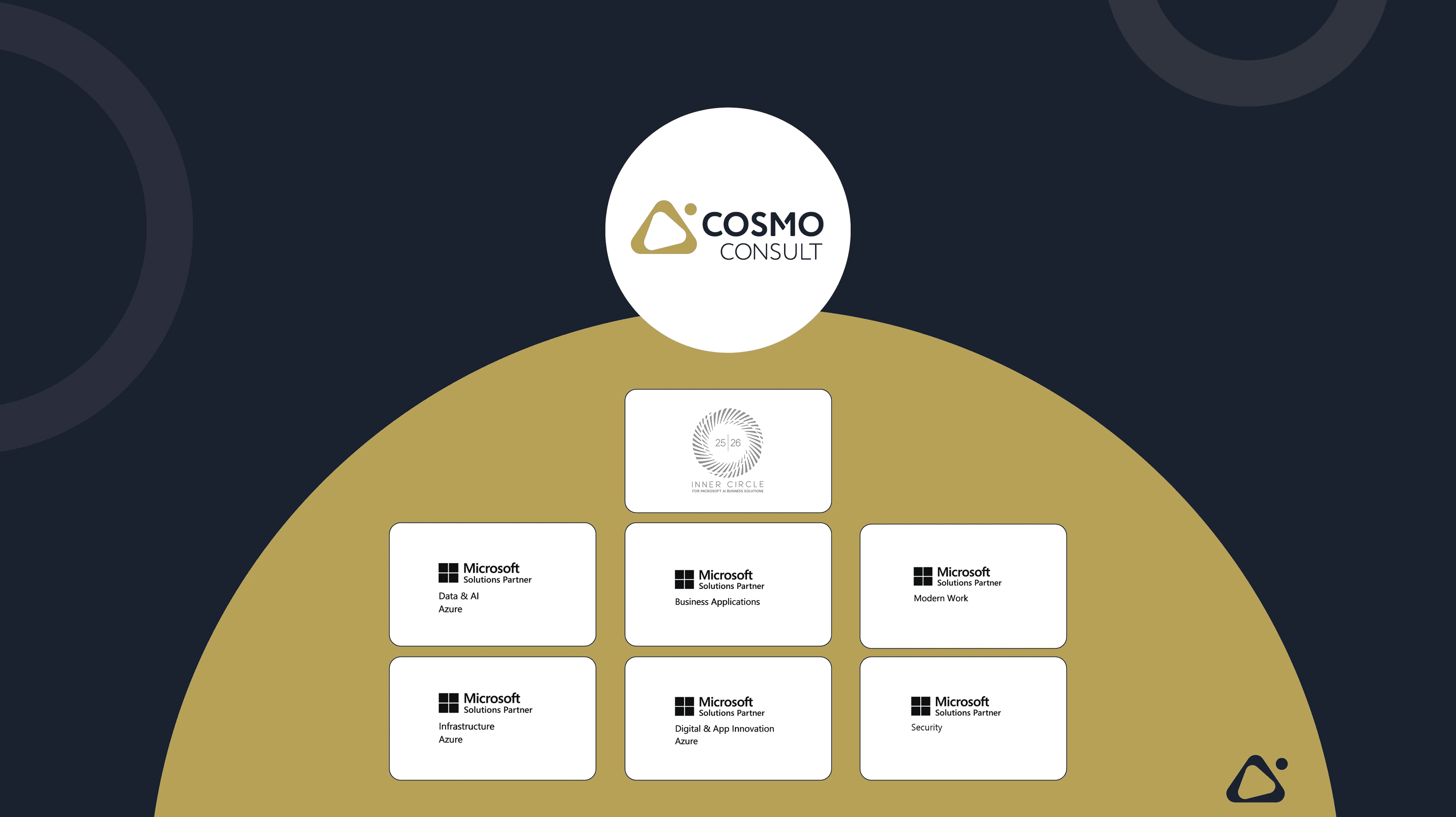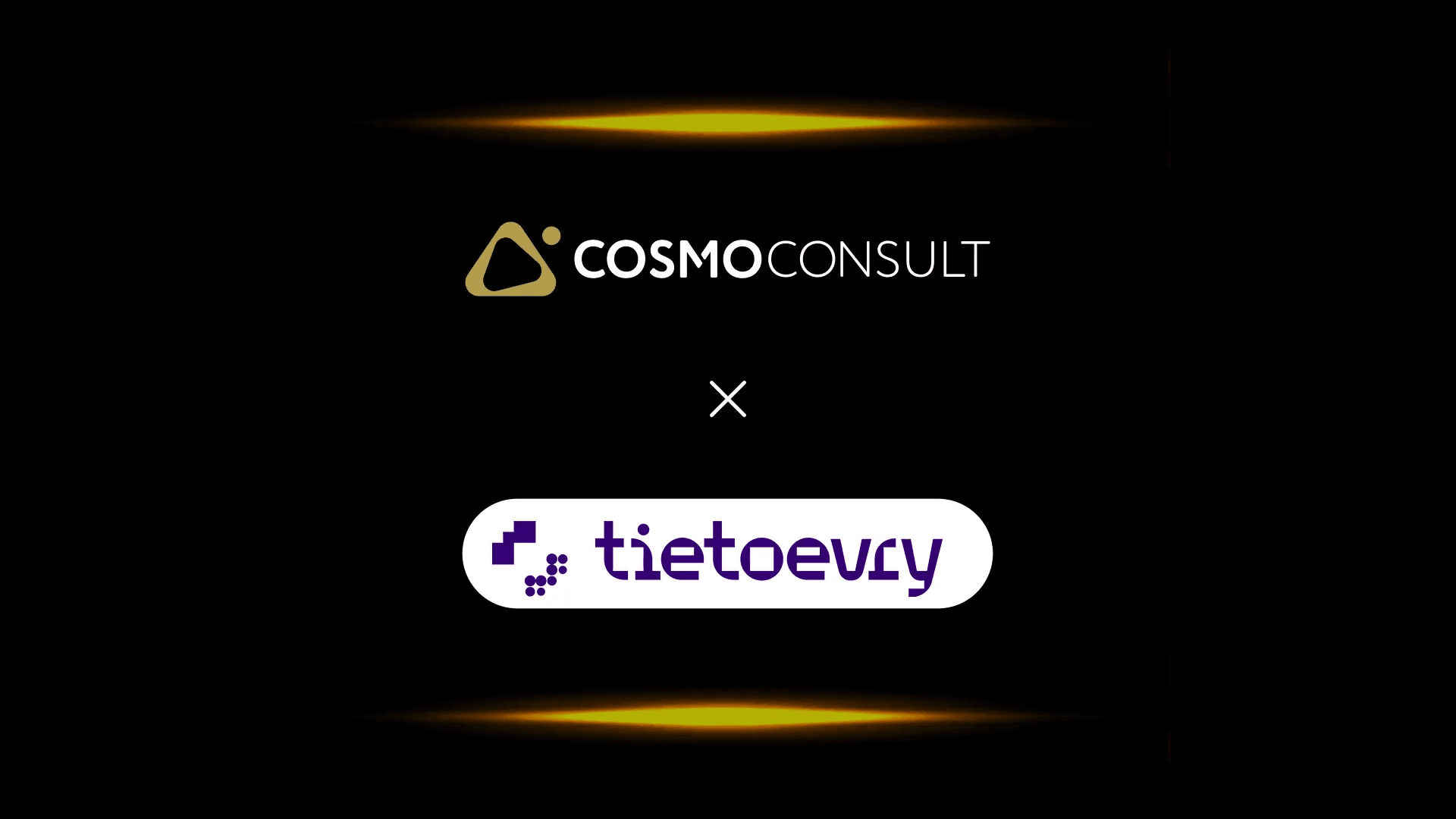
Artificial intelligence is one of the most common buzzwords of our time, and many are raving about its potential and the possibilities it brings. However, often people still do really know how to integrate it into the daily work at their companies. Roland Abele, managing director of Max-Con Data Science GmbH, a Cosmo Consult Group company, has this explanation.
Mr. Abele, when you hear people talk about artificial intelligence (AI) you hear all kinds of terminology: machine learning, neural networks, deep learning. What do you think AI consists of?
My years of experience in the development and implementation of algorithms for optimizing business decisions has lead me to approach the term artificial intelligence with humility. Over the years, people have often talked about intelligent systems and intelligent algorithms, but whether these are actually algorithms from the field of artificial intelligence or just intelligently chosen mathematical algorithms is a secondary issue. The main thing when using mathematical models is what added value they generate.
Because the amount of information and data is constantly increasing, people are looking for solutions that can make independent decisions that are based on the data quickly and reliably. That means that AI is defined by the task and it consists of programs that make optimal, system-supported decisions. It is therefore important to comprehensively outline the task and thoroughly analyze it, so that an intelligent process can provide a solution more quickly, economically and sustainably in the real world while learning from the results it generates and optimizing itself on that basis. AI is not something you can just buy. It is something you have to build. Digital transformation is the path, and optimization through targeted use of AI services is the goal.
When does it become interesting for companies to use AI?
As I said, the focus is always on the added value that it brings. This generally means increasing revenues and reducing costs. It is important to examine each case individually to determine what the prerequisites and framework conditions are for being able to put together knowledge and intelligence in new ways and for independent learning and to optimized decision-making to take place on this basis within the existing processes and operative systems. You can find areas to apply this approach wherever people put a lot of effort into complex decision-making processes.
What framework conditions do companies need to create in order to use AI effectively?
The basis of artificial intelligence today is processing very large amounts of data - what we call big data. The underlying data in particular plays a decisive role. The big challenge in most applications, however, is that there is not enough history available, the quality of the data is poor and a lot of data has not been recorded systematically at all. Human intelligence is still necessary in this regard. Adapting the model to fit the special requirements of the company still has to be done by human beings with their special cognitive abilities. For that reason, Cosmo Consult has developed a standardized introduction to defining a task for the field of AI. This part of our methodology plays an important role in creating economically viable solutions for customers.
Can you explain that to us in more detail?
The first step when you start thinking about using AI systems in your company is to take a very close look at how to optimize your business processes and objectives. In the data discovery phase, we first work together with customers to define the problem and then discuss it in detail. The second issue is the data on which the project is based. In this step, the data that is necessary for solving the problem is compared with the existing data and the quality, quantity and consistency of the data are evaluated. On the basis of this collected knowledge, it is then decided which algorithms are suitable for the solution of the task - in particular whether a standardized industry solution is suitable or whether you are dealing with a complex, individual problem.
We then work together to develop an appropriate solution and integrate it into the business processes. Experience with dealing with AI solutions and results from mathematical models is particularly important. The results always have to be gone over with a critical eye. They also have to be validated by the experience of the customer's experts. That is the only way to arrive at a good solution for the defined task. It is also possible to develop step-by-step solutions, in which you increase the complexity gradually, so that the results remain comprehensible and employees’ acceptance of new decision-making or support systems is ensured over the long term.
Can you give an example from your practical experience?
With our AI service cc|predictive control, the processes of a plant or machine can be independently optimized. With system support, production parameters and controller settings are automatically optimized for the desired production quality. Input for the optimization algorithm comes from data from the surroundings such as room temperature and humidity as well as the properties of the raw material to be processed. A forecast model based on this data is created that identifies production waste trends at an early stage and makes system-supported suggestions to avoid them or gives specific commands to adapt the controller to the plant. The unique feature of cc|predictive control is its real-time processing. Quality measurement procedures such as image recognition feed the optimization algorithm with changes in quality. The different types of defects are automatically derived from this data and then sorted according to possible causes. We then use machine learning methods to create decision making processes based on the findings from the cause-effect analysis. In this mathematical model, the settings are sent to the process control in real time. This results in what is called a closed-loop approach, forming the basis for a robust model. When you use cc|predictive control, you can predict waste early on, minimize it, and increase production efficiency for the long term.
Are there industry-specific differences?
Naturally there are industry-specific differences. The demands and tasks of commercial companies and industrial companies are sometimes fundamentally different. That is also true for process manufacturers and project manufacturers in the industrial sector. There are some AI solutions that can be deployed regardless of the sector, because some goals represent global subordinate goals that all companies have. Determining optimal inventory is a goal that is important and interesting in all sectors. However, for retail companies, models for optimal adjustment of production parameters do not play a role. The tasks and framework conditions within sectors also vary and have to be assessed individually. There are AI services for dynamic pricing, replenishment and assortment optimization available to retail companies, which have been developed on the basis of practical experience for real-world use and indeed are already being used by well-known retail companies.
What can COSMO CONSULT offer users?
So far COSMO CONSULT’s market reputation has been one of a reliable ERP partner that implements sector-specific solutions for medium-sized companies and international key accounts in close cooperation with Microsoft around the world. As an end-to-end solution provider, we are now in the process of showing our customers where there is existing potential for implementing AI solutions. Our aim is to increase the competitiveness of these customers and make them even more successful. We offer the AI solutions we have developed as cloud services on the Microsoft Azure platform. Currently, we offer Dynamics 365 Business Central AI solutions for forecasting demand and optimizing inventory and orders. Our range of standardized modules will be further expanded and it offers a wide variety of options for optimizing business processes.
So you offer standardized services?
Yes. First of all, standardized logical approaches can be quickly and cost-effectively integrated into customers’ existing systems, regardless of what software release is being used. Second, the development and maintenance of complex algorithms is much more cost-effective when implemented in the form of a standardized service. The service is offered on one platform: Azure. Customers pay only for the use of the AI service and do not have to invest in powerful hardware and programming of the integration. They can stop using the service at any time. Customers also benefit from the global development, maintenance and updating of the basic algorithm. We use an intelligent API management system that we developed, to map the input data (such as ERP, CRM and MES data) individually for each customer and the results are fed automatically into the standard data readings of the operative systems. This results in cost savings from the very first day of use and generates added value through the targeted, individualized application of a standardized optimization model.
What kinds of added value can be achieved?
The data-driven decisions made with the help of AI solutions have a direct effect on costs and profits. They also allow planning to be recalculated ad hoc at any time without taking much time. Finally, AI solutions make companies more flexible by taking into account the effects of disruptions and changes in the underlying data such as customer deadlines, quantities needed and machine availability on an ad hoc basis. Time-consuming calculations done by hand are no longer necessary. Buyers and dispatchers save time, and time-consuming planning meetings are eliminated or shortened.
What can we expect from COSMO CONSULT in the near future?
The digital transformation of business has set in motion a continuous process of change that is without precedent. The range of what we offer will expand rapidly because the services we offer can be integrated quickly and cost-effectively. These include the AI services we offer as intelligent ERP extensions. Our idea is based on independent proactive assistants that can be integrated into existing ERP systems flexibly and ensures that companies receive optimal support for their operative decisions. Our AI cloud services are designed to appeal not only to customers using Microsoft Dynamics 365 Business Central, but also enable other ERP solutions to access Cosmo Consult's services as well via a cloud-based API management system.
Mr. Abele, thank you very much for the interview.
The interview was published in the manage-it magazine (Germany)
Keywords
More similar news articles
Found what you were looking for?
Start your intelligent search now



